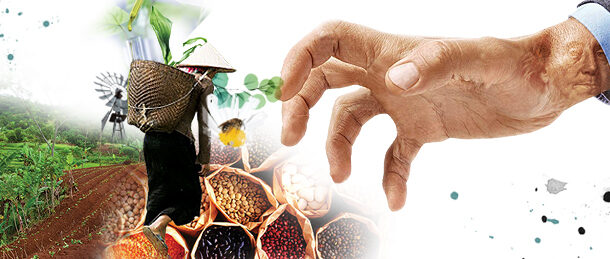FoE International reports:

A new report launched October 13th exposes how agribusiness corporations like Nestle, Cargill, Unilever and Pepsico, together with the World Economic Forum, are using public private ‘sustainable agriculture’ initiatives to promote an environmentally and socially destructive model of food production, while undermining genuinely sustainable food systems and their democratic governance. With the backing of some high profile conservation NGOs, global agribusiness giants are using these initiatives to co-opt and weaken concepts of ‘sustainability’ and ‘agroecology’, allowing them to pursue a corporate profit-driven agenda and shape global public food policy in their interest.
“Junk Agroecology: The corporate capture of agroecology for a partial ecological transition without social justice” examines three high profile public-private initiatives:
- “Sustainable Agriculture Initiative” (SAI);
- “New Vision for Agriculture” (NVA);
- “New Food and Land Use Economy Coalition” (FOLU).
It is published during a UN Committee on World Food Security virtual meeting in which world leaders are discussing how to transform global food systems and tackle the devastating impacts of COVID-19.(1)
“Under the umbrella of public-private initiatives such as SAI, NVA and FOLU, global agrifood corporations are attempting to portray themselves as holding the solutions to problems they played a key role in creating. Their ‘junk agroecology’ allows them to continue profiting without addressing the socio-economic, political and ecological injustices on which the agrifood system is based, or the exclusionary and short-sighted ideology that legitimises it.”
— Katie Sandwell from the Transnational Institute (TNI).
